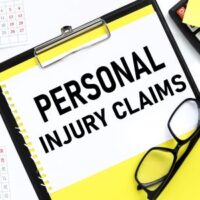Family Gets Permission to Sue After CHP Officers Arrests Stroke Victim

Recently, a three-judge panel on the 9th U.S. Circuit Court of Appeals reversed a lower court’s dismissal of a lawsuit filed by the family of a man who had the misfortune of being pulled over while he was having a stroke. The three-judge panel ruled that the estate of the decedent could file a personal injury lawsuit against the arresting officer and California Highway Patrol. Originally, the judge in the case decided that the officer was protected by the legal concept of qualified immunity. Qualified immunity generally shields law enforcement officers from legal liability except in cases where they violated someone’s constitutional rights or otherwise acted unlawfully.
Six years ago, a federal judge decided that the California Highway Patrol officer was protected from a civil lawsuit filed by the estate of the victim after he was involved in a one-car accident on a Costa Mesa freeway on-ramp. The highway patrol officer failed to call an ambulance. Instead, the officer observed the man for 45 minutes after arriving at the scene. She then arrested him on suspicion that he was on drugs. But the man was not on drugs. He had actually suffered a stroke. He would not get to the hospital until hours later.
An “unreasonable” mistake
The circuit court ruled that the officer was shielded from the civil suit by qualified immunity. However, the appeals court disagreed. According to the appeals court, the officer made an “unreasonable” mistake by failing to summon prompt medical care which was a violation of clearly established law. This fact disentitled her to qualified immunity, according to the appeals court.
The court wrote that a reasonable jury could find that the officer violated the victim’s constitutional rights by failing to summon prompt medical care. The court further held that the officer’s apparent belief that the victim was not in need of medical attention was based on an unreasonable mistake of fact or judgment.
One judge dissented from the ruling writing that, while tragic, there is no clearly established law that requires an officer to distinguish between symptoms and call for emergency medical assistance when there are no obvious signs of a major physical injury.
According to Fourth Amendment case law, police are required to provide “reasonable post-arrest medical care,” the appellate court noted.
Although there were no obvious signs of impairment, no alcohol in his blood, and no evidence of drug use in the car, the arresting officer took the victim to Orange County Jail where a nurse took his blood pressure but refused to admit him, saying that he needed emergency care. After two hours passed, the victim was brought to a local hospital where he was admitted more than three and half hours after the crash. According to the family, the delay in treatment caused the victim severe brain damage. He is no longer able to care for himself. Had the victim been able to get prompt medical treatment, the damage caused by the stroke would have been mitigated.
Talk to an Oakland, California Personal Injury Lawyer
Venardi Zurada represents the interests of injured parties in personal injury lawsuits filed against negligent defendants. We serve the Bay Area from our office locations in Oakland and Walnut Creek. Call our Oakland personal injury lawyers today to schedule an appointment, and we can begin investigating your case right away.
Source:
pressdemocrat.com/article/news/a-chp-officer-thought-a-stroke-victim-was-on-drugs-years-later-his-family/?ref=recent

 The Official Injury Attorneys of the San Francisco 49ers
The Official Injury Attorneys of the San Francisco 49ers